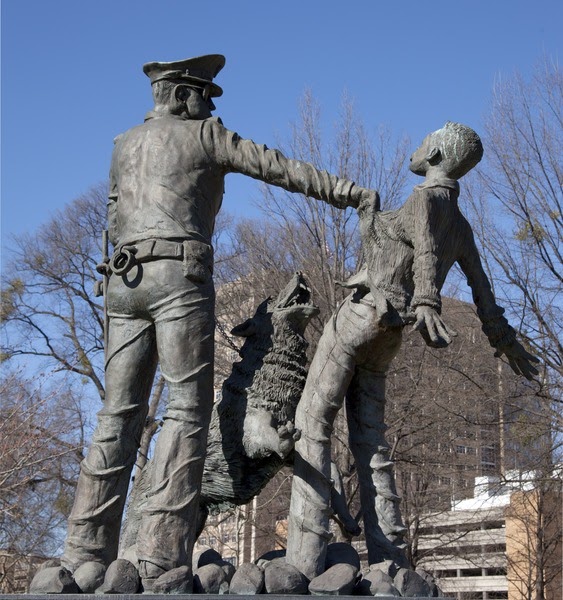American history consists of centuries of pain, war, sadness and chaos. Founded in 1776, the United States had humble beginnings, as immigrants traveled overseas in search of freedom and a new life.
Though the United States has had countless issues, the country has evolved and is still evolving into something greater than anyone could ever imagine. Today we often overlook the past in an effort to move forward “in the spirit of a new freedom and rising youth,” in the words of the late Storer College choir director, Pearl Tatten. However, there is no plausible way to move forward if you don’t recognize your past.
This recurring problem of people wanting to move forward from the past has prompted many Americans to crave the preservation of what makes them. This just so happens to be their past. The arrival of this need led to the opening of several public history sites that served the primary purpose of educating the public of historical events that took place in this country so many years ago and though American history has somewhat been covered in depth by these sites, a majority of the ethnicities that help make up this country question if they are being represented in these museums.
This brings about the question ‘Is there enough information being interpreted that concerns indigenous peoples, Asian Americans, Hispanic Americans and African Americans in these sites? These public history sites attempt to give all Americans a means to look at their past and see what their ancestors might’ve endured in the years leading up to the present, yet, a great number of minorities in America do not have that privilege of visiting these sites to gain information regarding their past when visiting these sites, in particular, African Americans.
Representation has always been impactful in each aspect of life whether it is in regards to television shows, careers or an area of study. Representation leads to the diversity of every element that makes up our communities, country and even the world. Without it there would rarely be variety in society. This relates to the public history field because today there is a lack of portrayal or representation of many of the minorities that helped to build this country, including African Americans.
For years African Americans were subjected to a life of loss, sorrow and hurt. They contributed a great deal of their lives to build up the United States of America however, the most recognition given to notify their contribution to the country, in most public history sites, is that they were slaves and later a part of the Civil Rights Movement but there is so much more to share about African American history. There are rarely stories interpreted that concern Daniel Hale Williams, a black surgeon who performed the 1st successful heart surgery, Sarah Boone, an African American inventor who perfected the ironing board among an innumerable amount of other important individuals in African American history. Their African American stories aren’t always presented in a way that draws people in and in response it has reflected the number of African American visitors and employees at public history sites.
There is currently a discussion taking place in the public history world centered around this lack of interpretation regarding African American history. Some African American historians believe that there is a lack of information regarding African American history or the interest in African American history just isn’t present. Regardless, African American history deserves to be portrayed in American public history because it did, after all, help to build the U.S. . This inclusion of African American’s in public history sites will most likely lead to more African American involvement in public history.
For instance, when people visit historical sites they typically come to learn about how the past affects them today and what their ancestors went through. African Americans have had this privilege stripped from them. The first time being their abduction from a normal life and being sold into slavery. The slavery epidemic tore families apart and forced others in a lifetime of loneliness and always believing that something was and is missing from them. This epidemic has caused most African Americans to feel lost. They don’t have the luxury of knowing where they came from because of the many holes that slavery has left in their geneaology. Now, today these holes in the history of African American’s still affects them. In public history it is rare that you see the history of African Americans being shown as more than slavery and the Civil Righs Movement. As mentioned before, there is so much more to their history than these two topics. In a survey taken by Greening Youth Foundation Intern Gabrielle Terrett during the summer of 2019, visitors at Harpers Ferry National Historical Park admit that when they think about African American history the first things to come to mind are the Civil War, Slavery and Martin Luther King Jr. As noted from the survey it is not extremely often that one sees the variation from these subjects or the interpretation of recent African American history or what happened with African American’s between the Civil War and the Civil Rights Movement. This excluded history forces many people of color to discover their history by their lonesome. In history classes African American history is briefly discussed and in public history sites there is a lack of representation. So, how can this issue be resolved? How can historians better integrate the world of public history? The first step in making this change is to arm historians with more knowledge on the subject.
To gain a better understanding of African American history and its people one must first understand the importance of Black history to them and how to address it in a manner that shows extreme care in handling the information.
-Sojourner Chief
